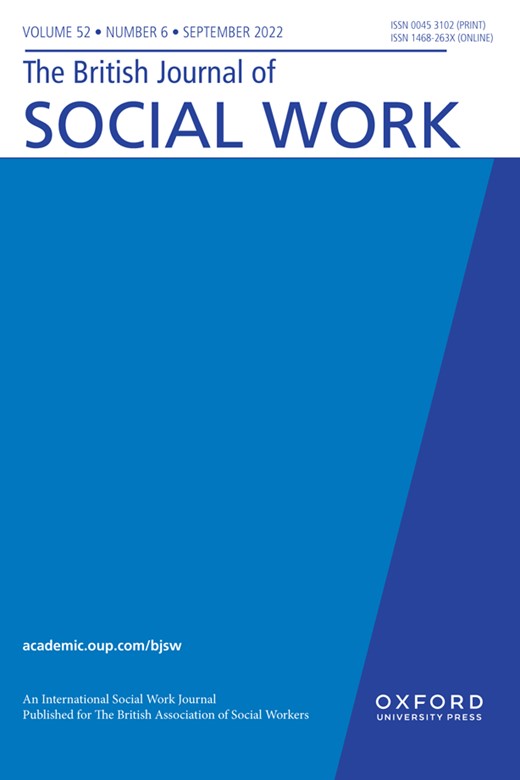-
Views
-
Cite
Cite
Autumn Roesch-Marsh, COVID-19 and Co-Production in Health and Social Care Research, Policy, and Practice: Volume 1: The Challenges and Necessity of Co-Production, Peter Beresford, Michelle Farr, Gary Hickey, Meerat Kaur, Josephine Ocloo, Doreen Tembo and Oli Williams (eds), The British Journal of Social Work, Volume 52, Issue 6, September 2022, Pages 3774–3776, https://doi.org/10.1093/bjsw/bcab229
Close - Share Icon Share
Extract
This book includes sixteen chapters written by a diverse group of forty-eight authors from across the fields of health, social work and social care. These authors have multiple identities in their fields and bring experiences of receiving services, providing services, research and the academy, activism and community work, advocacy and policy development. The book was published by Policy Press as part of the Rapid Responses pandemic series. It is one of two volumes published on the theme of co-production in health and social care research, policy and practice. The books are both free and open access and this was funded by the Health Foundation. In this review, I will discuss Volume 1: The Challenges and Necessity of Co-production.
I believe this book should be essential reading for all of us working in the fields of health, social work and social care. There are three reasons for this. The first relates to the way the book was written and what we can learn from this. As the editors explain in the introduction to the book, in what I expect is a bit of an understatement, bringing together such a large and diverse group of authors during a pandemic was a ‘challenge’. However, they sought to develop the book in a way that reflected the principles of participatory practice. This meant that they worked to support a diverse range of different contributions and enable new collaborations. The editors highlight that achieving their participatory aims for the book was not easy and they suggest they were not always successful. Despite this, it is clear they have achieved something really unique and important. They have managed to bring together a genuinely diverse range of authors, centring voices and experiences that are often marginalised within the academy. For example, Chapter 8 Sovereign and servers, describes how Sikh individuals and organisations came together to provide support to those most in need during the pandemic and some of the barriers and racism they faced in this work. The chapter centres Sikh ways of knowing and doing community activism and support and illustrates how community-led co-production of services can be stymied by those with institutional power.




